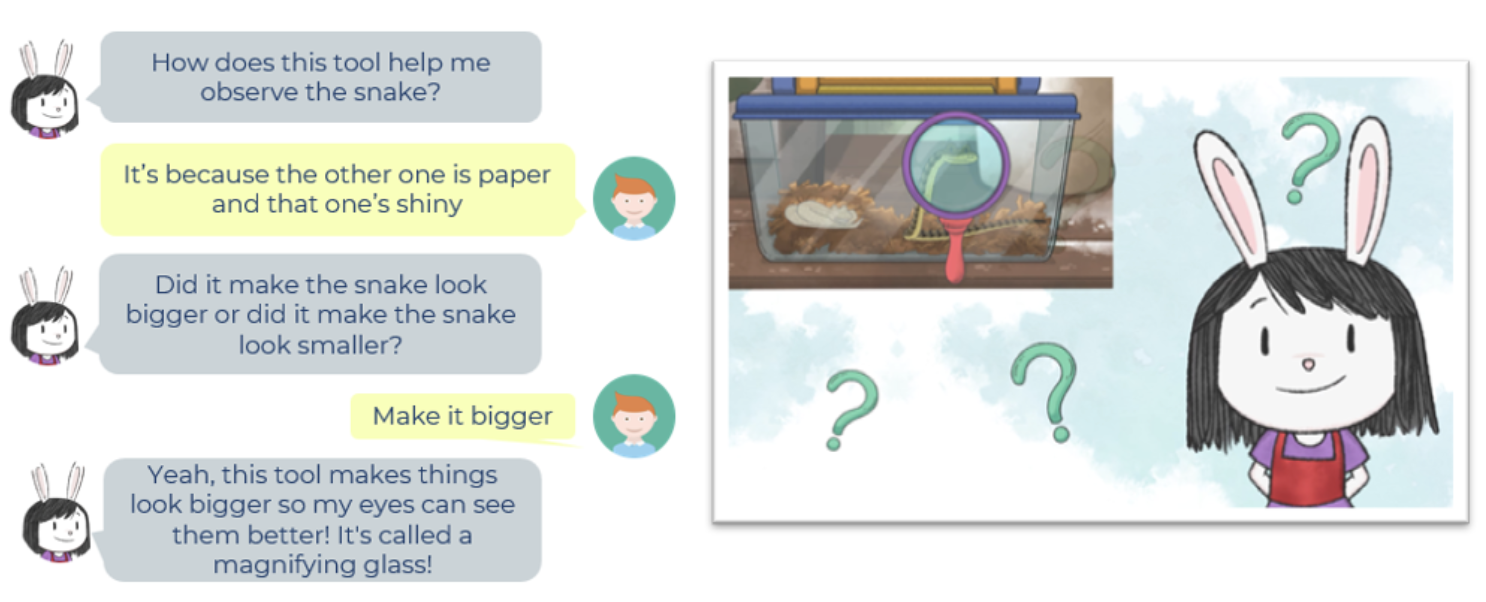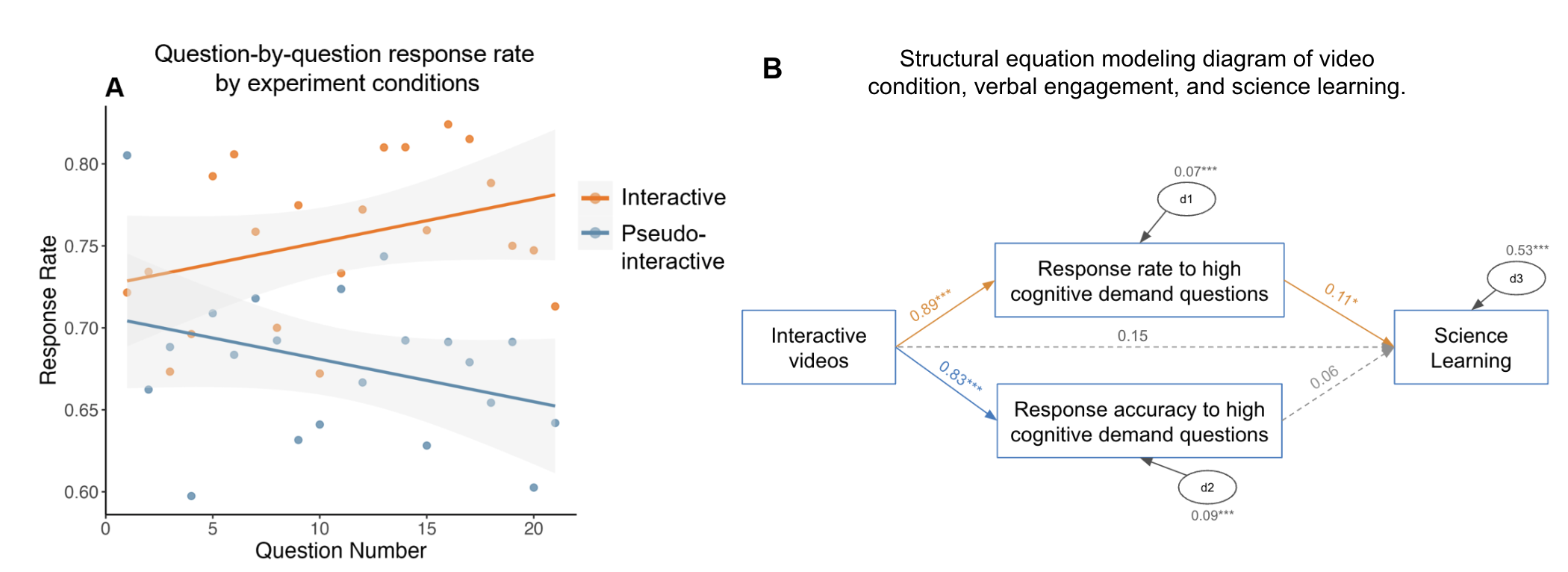Children’s Learning and Engagement with Conversational Agents
Our lab has collaborated with PBS KIDS to create interactive science video programs where the lead character, empowered by artificial intelligence, actively engages with children. In contrast to traditional animated shows like Dora the Explorer, where the character briefly pauses to ask a question and then offers a predetermined response regardless of the child’s actual reply (a style we term “pseudo-interactive”), our “conversational videos” supports interactive verbal exchanges, allowing the media character to provide contingent feedback based on the child’s responses.

Highlights
As part of this broad study, I examined children’s verbal engagement with the conversational agent while they viewed the interactive videos as opposed to the pseudo-interactive ones.
Using a multi-level model, we found that children in the interactive condition became more likely to respond to the conversational agent as the episode progresses, whereas children in the pseudo-interactive condition became less likely to respond (Figure A). The interactive character seemed to bolster children’s inclination to respond, while the pseudo-interactive seemed to deter engagement. This observation aligns with the broader understanding that children adjust their behavior towards conversational partners, whether human or virtual, based on their interaction experiences and perceptions.
In addition, through structural equation modeling, we found that children’s increased inclination to actively respond to questions of high cognitive demand—those prompting prediction, inference, and explanation—mediated the differences in learning gains between the interactive and pseudo-interactive conditions (Figure B). This finding suggests that the interactive nature of the videos not only enhances engagement but also fosters deeper cognitive processing, leading to improved learning outcomes.

Publications
Xu, Y., He, K., Levine, J., Ritchie, D., Pan, Z., Bustamante, A., & Warschauer, M. (2024). Artificial intelligence enhances children’s science learning from television shows. Journal of Educational Psychology.[PDF]
He, K., Xu, Y., Levine, J., Ritchie, D., Bustamante., & Warschauer, M. (2024, March). Artificial Intelligence Enhances Children’s Science Learning from Television Shows by Boosting their Response to Questions of High Cognitive Demand [Poster session]. Cognitive Development Society Conference, Pasadena, CA.
